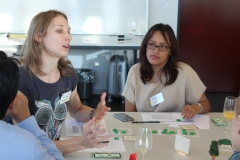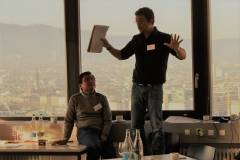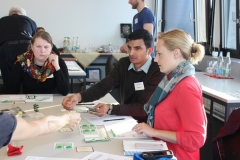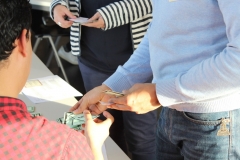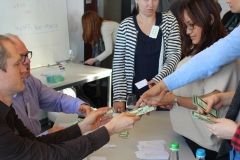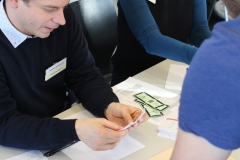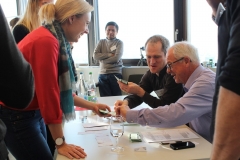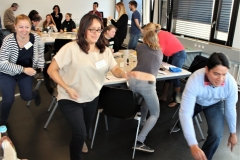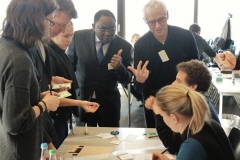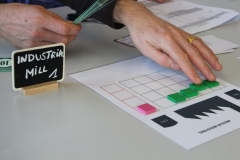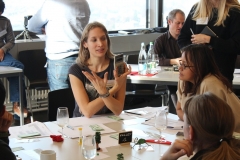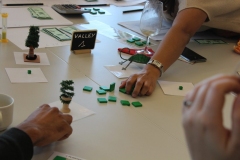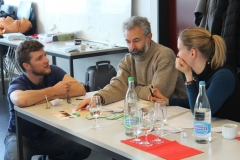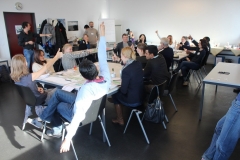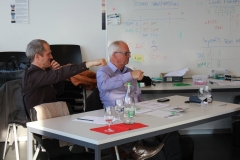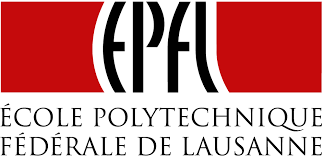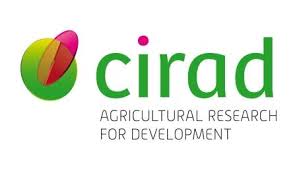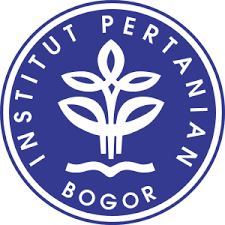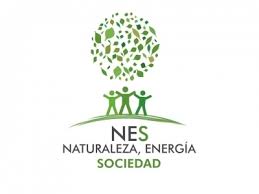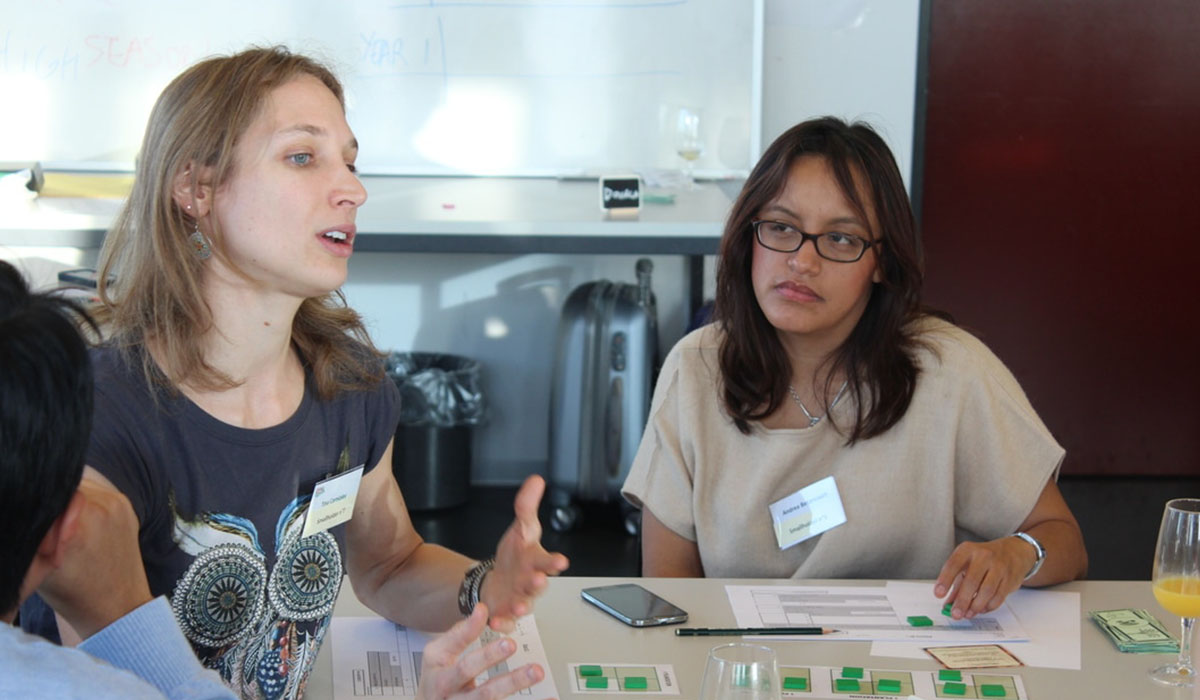
Workshop with Swiss stakeholders
On 9 December 2016, the ETH Zürich team organized a workshop to explore with stakeholders from Switzerland the resilience of the oil palm supply chain in Cameroon. The workshop used the CoPalCam game, developed in the field by the Cameroonian project team. Attendees included institutions and NGOs involved in conservation and sustainability (Greenpeace, IUCN, UNEP, TFT and others), but also the industry. Tight agendas prevented private companies to attend; however, and we will organize another workshop later in 2017 to let them share their insights.
All participants played the game with a lot of enthusiasm, struggling to balance the livelihood needs with their own personal objectives of sustainability and conservation. They experienced first-hand the forces at play – time pressure, uncertainty, power imbalances – that prevent smallholders to considering environmental factors. Irrespective of their own personal values, small-growers are often not in a position to think about sustainability.
One of the players, Xenia Klaus from the sustainability magazine “Das Lamm”, described her experience in an article. English translation here.
ETH Bachelor Student Nora Bögli is now conducting interviews with the participants to collect their feedback: what were the surprises, what did they learn, what should we do next. One thing we believe: this was not yet another discussion about supply chain links with stakeholders sharing widely diverging views. The first responses we have, show the workshop had quite an impact on their perception and understanding.
Location
Oil Palm Adaptive Landscapes (OPAL)
c/o Prof. Jaboury Ghazoul
Chair of Ecosystem Management
Department of Environmental System Sciences
ETH Zurich
Universitätstrasse 16
8092 Zürich
Switzerland

